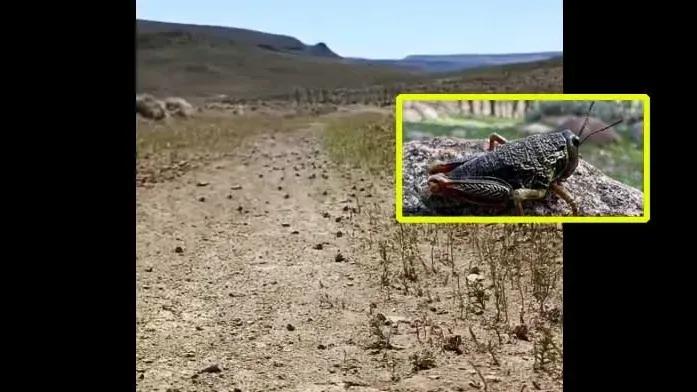The invasion of the toad locust and its economic repercussions in Patagonia
The toad locust (Bufonacris claraziana) has emerged as a phenomenon that poses serious challenges for agriculture and the economy of the Patagonian region. This insect, which has rapidly spread in provinces such as Chubut and Río Negro, not only affects the local ecosystem but also has significant implications for food security and the rural economy. How does this plague affect producers and the economy in general?
🦗 Current outlook
The toad locust has behaved like an "invading army," increasing its presence in agricultural and livestock fields in Patagonia. This insect, which does not carry diseases, has the ability to consume large amounts of vegetation, endangering crops of various agricultural products. According to recent reports, infestation hotspots have alarmingly increased, raising concerns among local producers.
Currently, the lack of effective control and eradication measures has led to an increase in production costs. Farmers must allocate significant resources to mitigate the damage, which reduces their profitability. It is estimated that the reduction in agricultural production could exceed 20% in severely affected areas. This impact not only translates to economic losses but could also influence food prices at the regional level.
🌍 International comparison
The response to similar pests in other countries offers valuable lessons. For example, in Australia, the introduction of the desert locust has led to effective biological control initiatives. Australian farmers have implemented monitoring and control programs that combine pesticide application with the introduction of natural enemies of the insect.
In the United States, integrated pest management has been key to addressing similar situations. Collaboration between the government, researchers, and producers has allowed for the development of strategies that minimize the economic impact of pests on agriculture. International experience shows that a coordinated and science-based response can be effective in mitigating economic damage.
⚠️ Social and economic implications
The expansion of the toad locust in Patagonia not only affects agricultural producers but also has social repercussions. The decrease in agricultural production can lead to an increase in unemployment in rural communities, affecting the quality of life of thousands of workers. This phenomenon can generate social tensions, as families depend on agriculture for their livelihood.
Moreover, economic uncertainty can discourage investment in the agricultural sector. Without confidence in the stability of yields, investors are likely to be cautious, which could limit access to financing for producers. Here it becomes evident that without strong institutions, there is no confidence. Without confidence, there is no investment.
📊 Control and prevention strategies
To address the challenge posed by the toad locust, it is essential to develop and implement effective control strategies. This includes the research and development of biological control methods, as well as the promotion of sustainable agricultural practices that reduce crop vulnerability. Training producers in integrated pest management is also essential to foster a proactive response.
Collaboration between the government, universities, and agricultural organizations can be a catalyst for developing effective policies. It is imperative that the response to this pest is not limited to palliative measures, but focuses on building a resilient agricultural system that can adapt to future challenges.
The experience of other countries, such as Australia and the United States, should be considered when designing an action plan. The implementation of a multifaceted approach that integrates scientific research, education, and financial support will be key to mitigating the impact of the toad locust in Patagonia.
Conclusion
The current situation of the toad locust in Patagonia is a clear reminder of the interconnection between agriculture, economy, and society. Fiscal balance is not a whim. It is a prerequisite for growth. The region's capacity to face this plague will depend on the implementation of effective strategies and collaboration among all stakeholders involved.
If not properly addressed, the invasion of the toad locust could become an insurmountable obstacle to the economic development of Patagonia, endangering not only agricultural production but also the well-being of the communities that depend on it. Argentina does not need more patches. It needs direction.

Comments